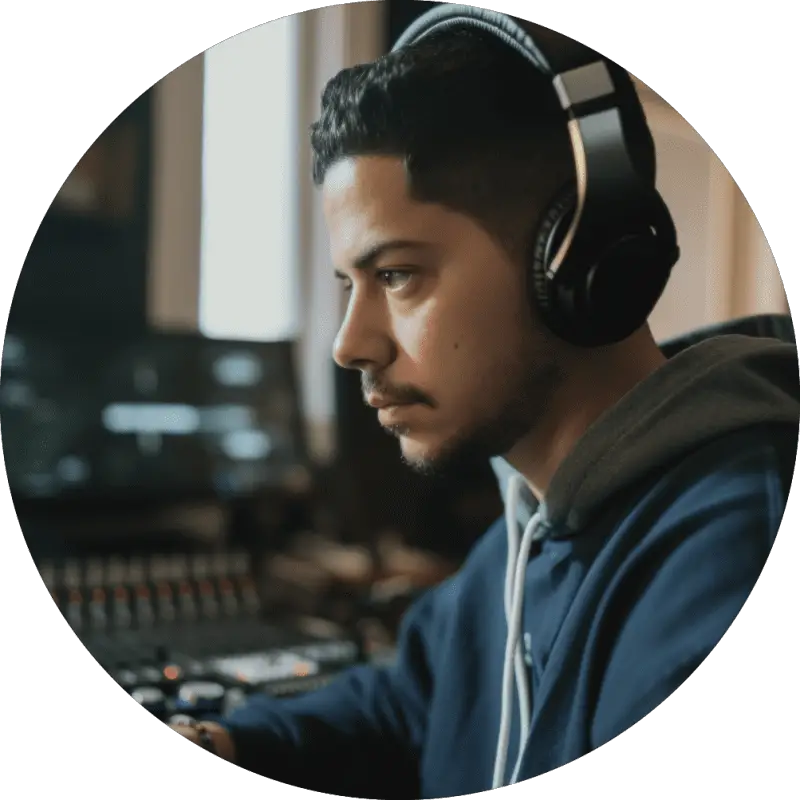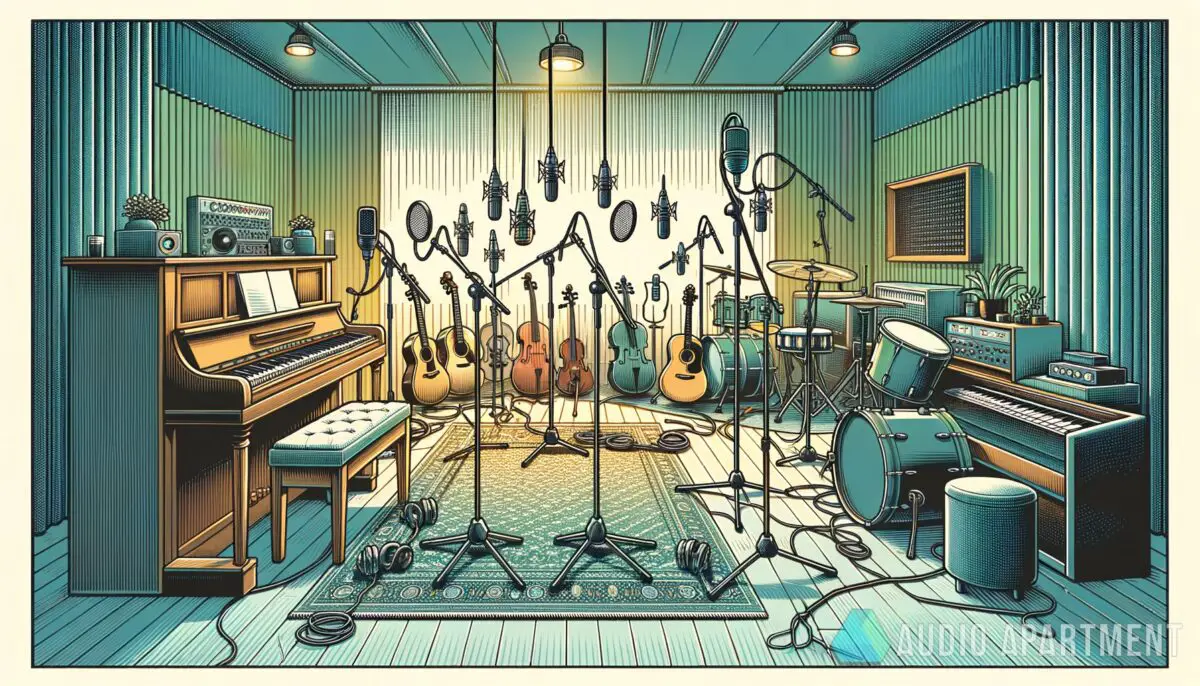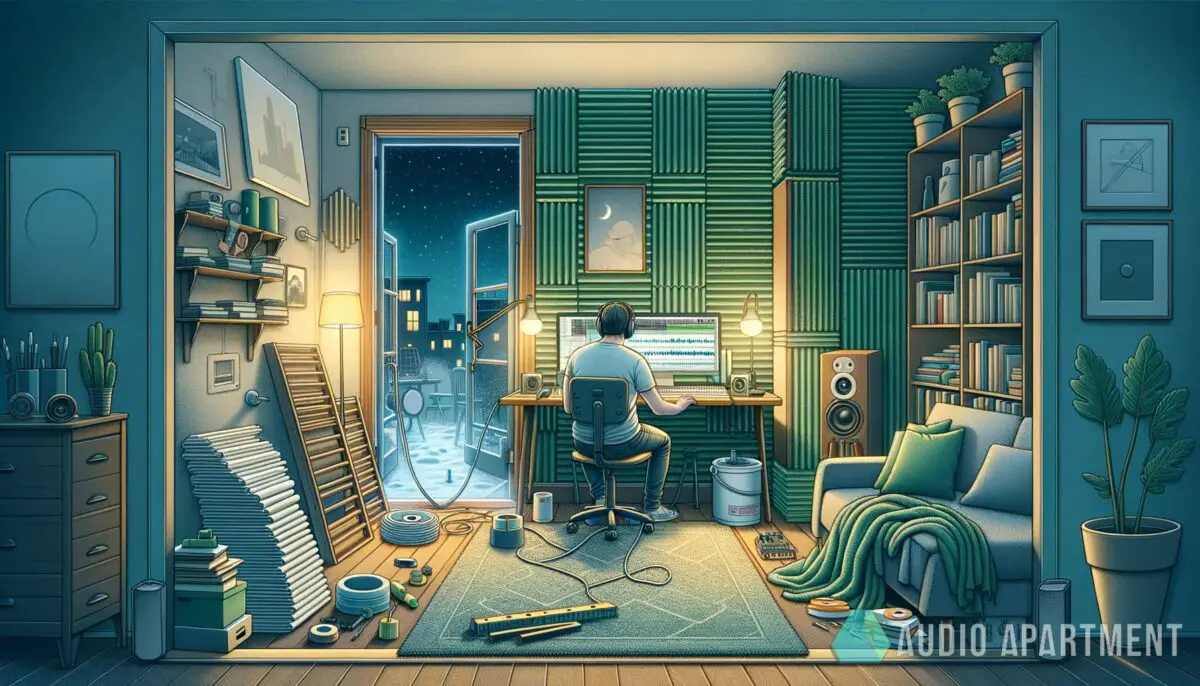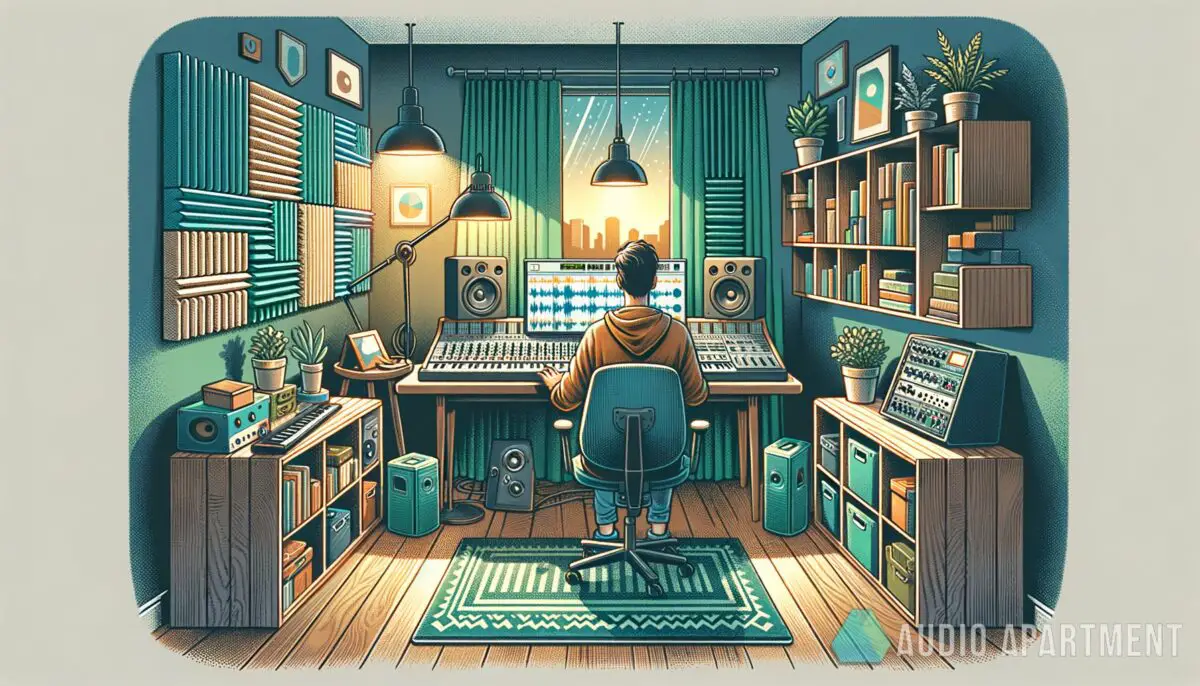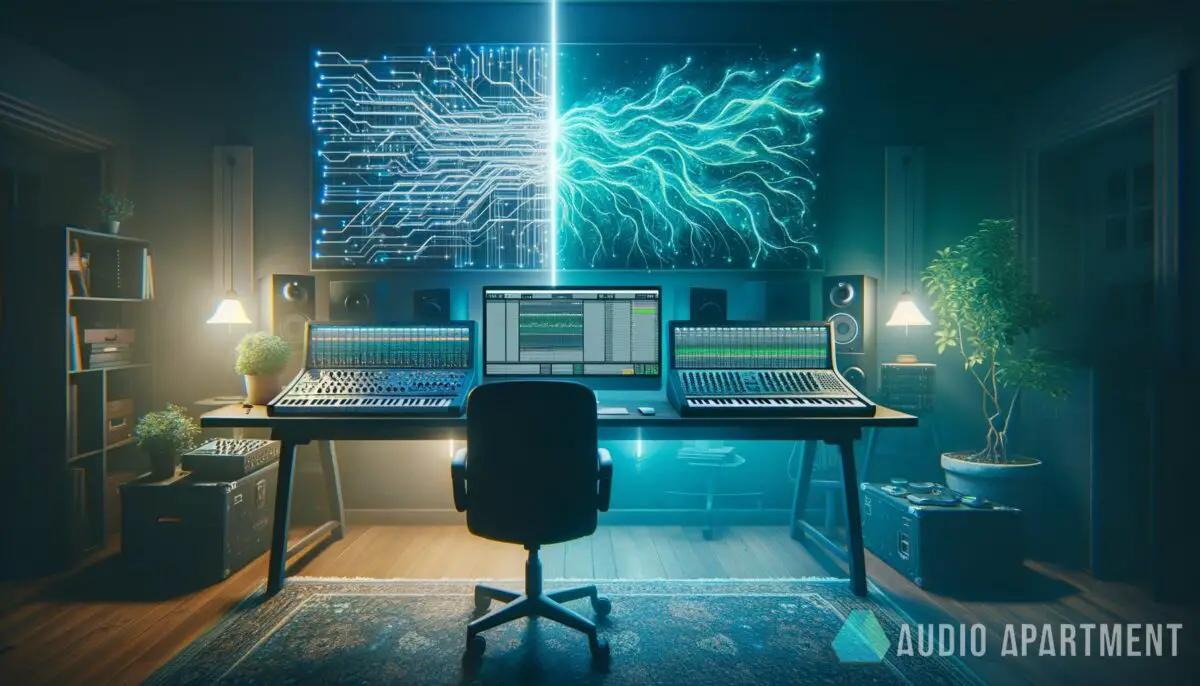Have you ever wondered what a jam session is and how it’s connected to music? Imagine a group of musicians, each with their own instrument, playing together not based on a written score, but on their own creativity. This is the essence of a jam session. Prepare to dive into the world of musical improvisation and discover the magic behind jam sessions.
What is a jam session? A jam session is a musical gathering where musicians come together to freely improvise and create music without prior arrangements or notes.
What is a jam session?
A jam session is a gathering where talented musicians come together to create music on the spot, without relying on pre-planned arrangements or written notes. It’s all about embracing the freedom to play, letting the music flow from their souls and instruments.

One of the key elements of a jam session is spontaneity. Musicians trust their intuition and follow their artistic impulses in real time. Each artist brings their unique skills and instruments to the mix, contributing melodies and rhythms that blend together in harmony.
AKAI Professional MPK Mini MK3

AKAI Professional MPK Mini MK3
Why are jam sessions important for musicians?
Jam sessions are an essential part of a musician’s growth and development. They provide a unique opportunity to collaborate with fellow musicians, experiment with new ideas, and explore different musical styles.
Participating in jam sessions helps musicians build their improvisation skills, enabling them to play on the spot with a group of people with different styles and backgrounds. It’s an excellent opportunity to develop one’s musical ability, learn from others, and gain a new perspective on their craft.
For example, imagine a guitarist who only knows a few chords and wants to improve their skills. By attending a jam session, they can collaborate with other musicians who can teach them new chord progressions, playing techniques, and musical styles. Through this collaboration, they can also discover new music that they may never have heard before.
They offer a unique opportunity to build skills, gain new perspectives, network with other professionals, and collaborate with others to create something amazing.
Moreover, jam sessions offer a unique opportunity for musicians to network with other professionals in the industry, creating connections that can lead to future opportunities. Whether it’s a chance to collaborate on a new project or an invitation to a gig, participating in jam sessions is an excellent way to open doors to new opportunities.
Jam sessions are an essential part of a musician’s journey. They offer a unique opportunity to build skills, gain new perspectives, network with other professionals, and collaborate with others to create something amazing. For any musician looking to take their craft to the next level, jam sessions are a must-attend event.
Jam sessions from different musical genres
Jam sessions work differently depending on the music genre. The table below provides an interesting comparison of jam sessions across several popular music genres and offers a comprehensive look into the unique characteristics of each genre’s jam session culture.
| Genre | Typical Instruments | Common Structures | Improvisation Level | Average Duration (minutes) |
|---|---|---|---|---|
| Jazz | Saxophone, Piano, Double Bass, Drums | 12-bar Blues, Song Standards | Very High | 15-30 |
| Blues | Guitar, Harmonica, Bass, Drums | 12-bar Blues, Call and Response | High | 10-20 |
| Rock | Electric Guitar, Bass Guitar, Drums | Verse-Chorus, Bridge, Solo | Medium | 15-25 |
From the intense, highly improvisational jazz sessions to the rhythmic, moderately improvisational reggae jams, each genre has its unique way of conducting jam sessions. It’s fascinating to see how musicians from different backgrounds come together to create spontaneous music, expressing their unique musical language.
Why should you consider joining a jam session?
If you’re a budding musician or simply have a passion for music, a jam session is an incredible opportunity to connect with like-minded individuals, unleash your creativity, and hone your improvisational skills. A jam session will let you embrace the spirit of improvisation and let your musical voice be heard!
When you have your own recording setup at home, you can create your own virtual jam sessions by layering different instrumental tracks and experimenting with improvisation.
Now, you might be wondering, how does all of this relate to home recording studios and music production? Well, the concept of jam sessions can be incredibly valuable in these realms as well. When you have your own recording setup at home, you can create your own virtual jam sessions by layering different instrumental tracks and experimenting with improvisation.
It’s a fantastic way to unleash your creativity and produce unique music that reflects your own style. So, whether you’re jamming with fellow musicians or exploring the depths of your home recording studio, the spirit of improvisation and the magic of jam sessions can truly elevate your musical journey.
How can you prepare for your first jam session?
Attending a jam session for the first time can be nerve-wracking, but with the right preparation, you can feel more confident and ready to join in the fun. Here are some tips to help you prepare for your first jam session.
- Practice the basics: Practice your scales, chords, and rhythm patterns to ensure that you can keep up with the other musicians. Familiarizing yourself with common music theory concepts will help you understand the chord progressions and musical structures that other musicians are playing.
- Learn etiquette: Make sure to familiarize yourself with common jam session etiquette. Jam sessions often have an unwritten set of rules that you need to be aware of to participate fully. For example, it’s important to listen to what other musicians are playing, not overpower them, and take turns soloing.
- Experiment: Don’t be afraid to step out of your comfort zone and try new things. Jam sessions are a space for experimentation and creativity, and it’s essential to be open to new ideas and different styles of music. By exploring new musical genres, you can learn more about yourself as a musician and develop your skills in exciting and unexpected ways.
For example, a drummer who’s never played jazz might feel intimidated when attending a jazz jam session. Still, by practicing jazz rhythms and listening to jazz music beforehand, they can feel more comfortable improvising and playing along with the other musicians.
Preparing for your first jam session is all about practice, preparation, and an open mindset. By familiarizing yourself with your instrument, music theory, and jam session etiquette and by being open to new experiences and ideas, you can have a fantastic time and take your musicianship to the next level.
Here are some dos and don’ts to keep in mind during a jam session:
| Dos | Don’ts |
|---|---|
| DO listen to what others are playing. | DON’T play so loud that you drown out others. |
| DO take turns when it comes to solos. | DON’T dominate the session by soloing the entire time. |
| DO be open to different musical ideas and styles. | DON’T dismiss or criticize others’ musical contributions. |
| DO communicate with other musicians, verbally or through musical cues. | DON’T ignore the group dynamic and play independently. |
| DO respect the chosen key and tempo. | DON’T drastically change the key or tempo without agreement from the group. |
What is the origin and history of jam sessions?
Ever wondered how jam sessions came to be? Let’s take a trip back in time and explore the fascinating history of this musical phenomenon. While the term “jam session” was coined in the 1930s, the concept of musicians gathering to create improvised music has been around for much longer.
Before the term “jam session” emerged, people were already familiar with the idea of “jamming” in the 18th century. Originally, it referred to pressing objects together or crushing them, much like fruits being transformed into jam. But it was jazz musicians who truly embraced and popularized the concept in the realm of music.

In the early 20th century, jazz musicians began using the term “jam session” to describe their informal gatherings where they would spontaneously create music together. These sessions often took place after public performances, in the late hours of the night. It was during these after-hours jams that musicians let loose, exploring new musical territories and engaging in friendly cutting contests to showcase their skills.
Over time, jam sessions became an integral part of jazz culture, allowing musicians to express themselves freely and collaborate in unique ways. These sessions provided a platform for artists to connect, learn from one another, and experiment with new musical ideas. As jazz evolved, so did the concept of jamming, extending beyond jazz and into other musical genres.
In the 21st century, jam sessions continue to thrive in various musical communities. Musicians from different backgrounds and genres come together to engage in the art of improvisation. Whether in physical gatherings or virtual spaces, jam sessions remain a vibrant and essential part of the music scene, fostering creativity, collaboration, and artistic growth.
What are community jam sessions?
Have you ever wondered about the vibrant and inclusive nature of community jam sessions? Let’s dive into the wonderful world of these musical gatherings and explore the diverse experiences they offer. Community jam sessions are a way for musicians of all levels to come together, connect, and create music in a casual and supportive environment.
Community jam sessions bring musicians and music enthusiasts from all walks of life together. These sessions are open to anyone who wants to participate, whether they are seasoned musicians, beginners, or even music lovers who simply enjoy listening. It’s an opportunity for people to share their passion for music and engage in a collective musical experience.
One of the remarkable aspects of community jam sessions is the range of musical genres and styles that coexist.
Unlike more formal performances or rehearsals, community jam sessions have a laid-back atmosphere. They often take place in local community centers, garages, or even someone’s living room. The focus is on creating a welcoming environment where people can freely express themselves through music.
One of the remarkable aspects of community jam sessions is the range of musical genres and styles that coexist. Musicians with different backgrounds and preferences come together, introducing unique flavors and influences into the mix. From jazz and blues to rock, folk, or even world music, these sessions become melting pots of creativity and diversity.
Advantages and disadvantages of jam sessions
Participating in jam sessions is a fantastic way for musicians to hone their craft, develop new skills, and build their network. However, there are also some potential drawbacks to keep in mind. In this section, we’ll explore the advantages and disadvantages of attending jam sessions.
Advantages of jam sessions
- Improves improvisation skills: Jam sessions provide an opportunity for musicians to improvise and play on the spot with other musicians. This helps develop their improvisation skills and ability to think on their feet.
- Networking opportunities: Jam sessions are a great way to network with other musicians, industry professionals, and potential collaborators. They provide an opportunity to build relationships and create new opportunities.
- Learning from others: By attending jam sessions, musicians can learn from other musicians, discover new techniques, and gain new perspectives on their craft.
- Experimentation and creativity: Jam sessions provide a space for experimentation and creativity, allowing musicians to try new things and explore different musical genres.
Disadvantages of jam sessions
- Unstructured format: Jam sessions often lack a clear structure, which can be intimidating for some musicians who prefer more organized practices.
- May lack diversity: Depending on the location and participants, jam sessions may lack diversity in terms of the musical styles and instruments present.
- Intimidating for beginners: Jam sessions can be overwhelming for beginners who are not familiar with the etiquette and musical concepts and may feel uncomfortable playing in front of others.
- Limited access: Depending on location and availability, some musicians may find it difficult to access jam sessions regularly.
If you want even more great tips and information, check out the video below.
Frequently Asked Questions (FAQ)
We’ve covered a lot about jam sessions, but you might still have some burning questions. Here are answers to three frequently asked questions about jam sessions:
How do I know if I’m ready to join a jam session?
Joining a jam session is all about enthusiasm and willingness to explore. Whether you’re a beginner or an experienced musician, if you have a basic understanding of your instrument and a desire to collaborate and learn from others, you’re ready to dive into the world of jam sessions. Embrace the opportunity to grow and have fun with fellow musicians!
Are there specific rules or etiquette I should follow during a jam session?
While the atmosphere of jam sessions is generally informal and laid-back, it’s still essential to be respectful and considerate. Listen attentively to other musicians and be responsive to their cues and give space for everyone to take turns and share the spotlight. Also, avoid overpowering or dominating the session and allow for equal participation.
Can I participate in jam sessions if I’m not an expert improviser?
Absolutely! Jam sessions are all about growth and exploration. Even if you’re not an expert improviser, participating in jam sessions can help you develop your skills and gain confidence. Start by playing simple melodies, observing other musicians, and gradually experimenting with improvisation. Remember, it’s a learning experience, and everyone has their own journey in music!
What is the purpose of a jam session?
A jam session provides a collaborative environment for musicians to improvise and play music together.
How can beginners prepare for their first jam session?
Beginners can prepare for their first jam session by choosing a few songs to play, being polite, and having a good understanding of the songs they will perform.
What are some benefits of participating in jam sessions?
Participating in jam sessions can help musicians improve their improvisation skills, network with other musicians, learn from others, and foster their creativity.
Conclusion
We’ve jammed our way through the fascinating world of jam sessions, exploring their history, significance, and the joy they bring to musicians. Did I cover everything you wanted to know? Let me know in the comments section below. I read and reply to every comment. If you found this article helpful, share it with a friend, and check out my full blog for more tips and tricks on music production, home studio recording, and audio engineering. Thanks for reading, and keep on jamming to the rhythm of your creativity!
Key Takeaways
This article covered the concept of jam sessions, exploring their origins, the role of improvisation, the sense of community they foster, and their relevance to music production. Here are some key takeaways:
- Jam sessions are informal gatherings where musicians come together to create improvised music.
- They originated in the jazz community but have expanded to various genres and musical styles.
- Community jam sessions provide a supportive space for musicians of all levels to learn, collaborate, and grow.
- Participating in jam sessions can enhance improvisational skills, broaden musical horizons, and foster a sense of musical camaraderie.

